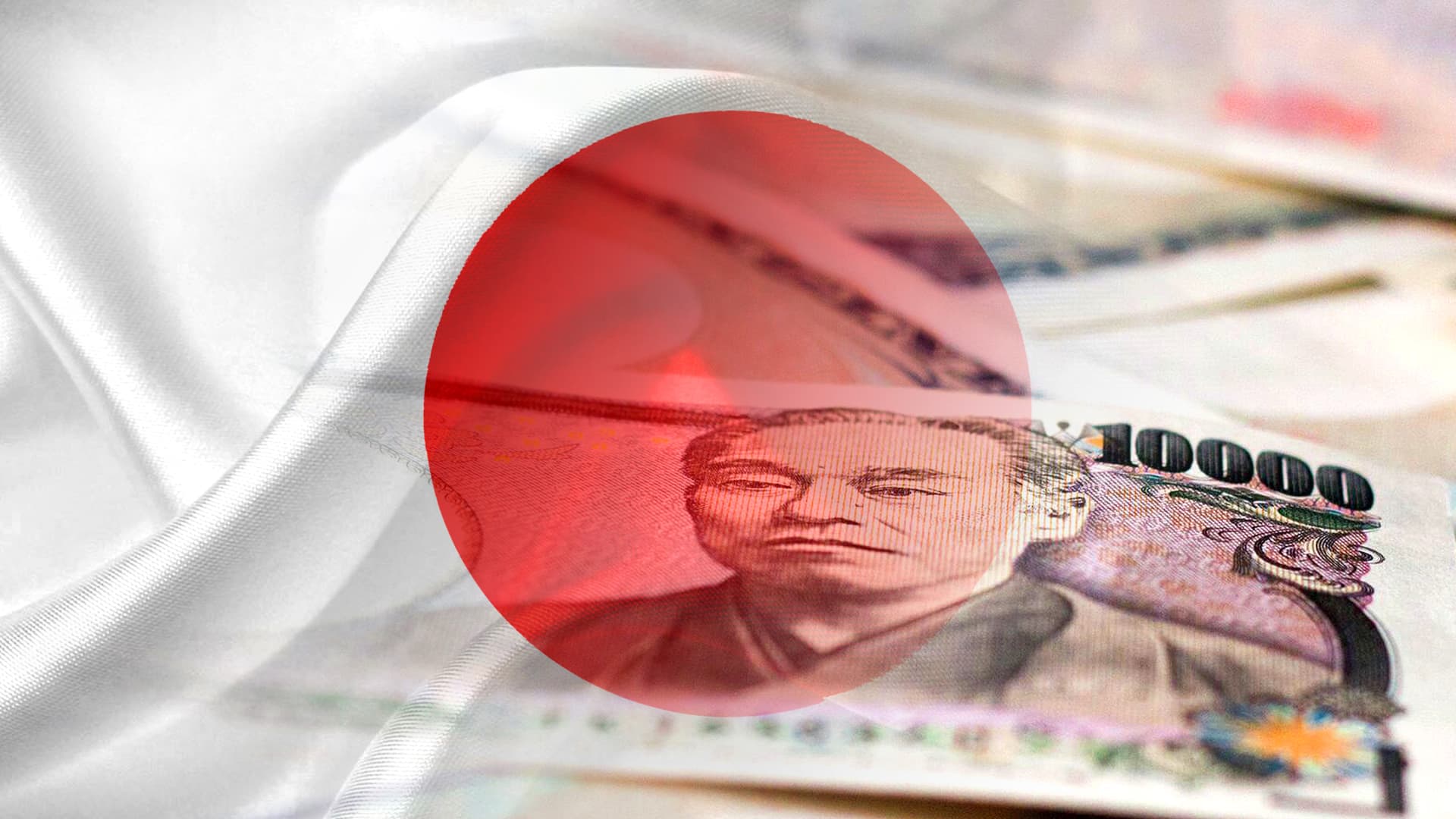Japanese yen weakens to 156 against dollar after Bank of Japan leaves rates unchanged

An editorial montage of the Japan flag and Japanese yen cash bank notes.
Javier Ghersi | Moment | Getty Images
The Japanese yen slid to 156 against the U.S. dollar on Friday after the Bank of Japan left its benchmark interest rate unchanged.
The BOJ kept its benchmark policy rate at 0%-0.1% as expected. Japan’s central bank also said it will continue to conduct bond purchases in line with the March decision.
The yen touched fresh lows following the decision.
Tokyo’s headline inflation rate for April came in at 1.8%, slowing from the 2.6% in March. Core inflation in the capital — which strips out prices of fresh food — sharply fell to 1.6% from March’s 2.4%, missing expectations of 2.2% from economists polled by Reuters.
Tokyo inflation data is widely considered as a leading indicator of nationwide trends.
Japan’s Nikkei 225 climbed 0.93%, while the Topix was up 0.79%.
South Korea’s Kospi was up 1.24%, while the small cap Kosdaq saw a smaller gain of 0.3%.
Hong Kong’s Hang Seng index rose 1.73%, while mainland China’s CSI 300 was 1% higher.
However, Australia’s S&P/ASX 200 was down 1.2%, dragged by industrial and health services stocks.
Overnight in the U.S., stocks tumbled after data showed a sharp slowdown in economic growth and pointed to persistent inflation.
U.S. gross domestic product expanded 1.6% in the first quarter, the Bureau of Economic Analysis said. Economists polled by Dow Jones forecast GDP growth would come in at 2.4%.
Along with the downbeat growth rate, the report showed the personal consumption expenditures price index increased at a 3.4% pace, well above the previous quarter’s 1.8% advance.
The Dow Jones Industrial Average slid 0.98%, weighed down by steep declines in Caterpillar and IBM. The S&P 500 dropped 0.46%, and the Nasdaq Composite lost 0.64%.
— CNBC’s Brian Evans contributed to this report.









